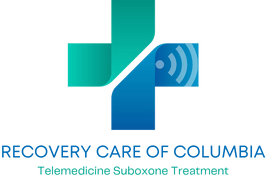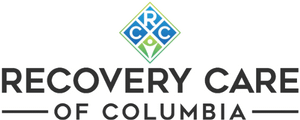Columbia Suboxone Clinic Blog
Kratom Withdrawal Symptoms Day by Day: What to Expect and How to Recover
If you’ve been searching for answers about kratom withdrawal symptoms day by day, you’re not alone. Many people in Tennessee—from Nashville to Clarksville, Jackson, Columbia, and Murfreesboro—are struggling with kratom dependence after turning to it as a “natural” way to manage pain or escape opioid cravings. But just like opioids, kratom can cause powerful dependence, painful withdrawals, and even long-term harm if left untreated.
The good news: recovery is possible, and at Recovery Care of Columbia, we’ve helped more than 1,000 people in Tennessee break free from opioids and kratom through Suboxone telemedicine treatment.
Understanding Kratom Withdrawal
Kratom (Mitragyna speciosa) is a plant native to Southeast Asia. While often marketed as a “safe” or “herbal” supplement, kratom acts on the same opioid receptors in the brain as hydrocodone, oxycodone, or heroin. The U.S. Food & Drug Administration (FDA) has warned about kratom’s risks, including addiction, abuse, and death.
When someone stops taking kratom after daily use, their body reacts with withdrawal symptoms that mirror those of opioids. The Drug Enforcement Administration (DEA) and Substance Abuse and Mental Health Services Administration (SAMHSA) both highlight the dangers of kratom misuse, especially when mixed with opioids, alcohol, or benzodiazepines.
Kratom Withdrawal Symptoms Day by Day
Every person’s withdrawal experience can vary based on how long they’ve used kratom, their daily dose, and whether they mix it with other substances. Still, many people report a clear day-by-day timeline:
Day 1–2: Early Onset
- Anxiety, restlessness, irritability
- Sweating, runny nose, watery eyes
- Muscle aches and chills
- Cravings to use kratom again
Day 3–4: Peak Withdrawal
- Intense cravings
- Insomnia and exhaustion
- Stomach upset: nausea, vomiting, diarrhea
- Dilated pupils, goosebumps, body pain
- Emotional swings: depression, hopelessness
Day 5–7: Gradual Easing
- Physical symptoms start to lessen
- Cravings remain strong
- Fatigue and low energy
- Ongoing irritability or mood swings
Week 2 and Beyond: Post-Acute Symptoms
- Lingering anxiety and depression
- Difficulty concentrating
- Ongoing cravings, especially during stress
- Sleep problems
Without professional support, these symptoms can lead to relapse. But with Suboxone treatment through our TeleMAT program, patients can avoid most of these painful withdrawals entirely.
Why Suboxone is Different
Unlike “cold turkey” quitting, Suboxone (buprenorphine/naloxone) attaches to opioid receptors in the brain, blocking withdrawal symptoms and cravings. This means:
- Patients can transition from kratom to Suboxone painlessly
- Medications are prescribed the same day as the first appointment
- Prescriptions are sent to a local Tennessee pharmacy or delivered overnight
At Recovery Care of Columbia, we pioneered TeleMAT (telemedicine medication-assisted treatment) in Tennessee. We are proud to be:
- The first virtual clinic licensed in Tennessee for opioid addiction treatment
- Accredited by The Joint Commission
- Staffed with master’s-level counselors and experienced clinicians
- Rated with over 100 five-star Google reviews (see reviews)
Convenience of Telemedicine for Tennessee Patients
Whether you live in Memphis, Knoxville, or rural small towns, transportation should never keep you from recovery. With telemedicine Suboxone treatment:
- You never need to come into a clinic
- Appointments are private, discreet, and compassionate
- All you need is a mobile device with internet
- Counseling is built into treatment for lifelong recovery
FAQs About Kratom Withdrawal
Q: How long does kratom withdrawal last?
A: Acute symptoms usually last 5–7 days, but post-acute symptoms like fatigue or anxiety can last weeks without treatment.
Q: Is kratom withdrawal dangerous?
A: Yes. While it may not always be life-threatening, it can lead to severe depression, relapse, or overdose if mixed with opioids or other drugs.
Q: Can Suboxone really help kratom withdrawal?
A: Absolutely. Suboxone virtually eliminates withdrawal symptoms and cravings, making recovery stable and sustainable.
Q: Do I have to come into your clinic?
A: No. With our TeleMAT program, you will never need to visit in person. Everything is done securely online.
Start Recovery Today
At Recovery Care of Columbia, we treat every patient with kindness and respect. Our founders—who are themselves in recovery—built this program to give people the treatment they deserved but never received.
📱 Call or text us today at (931) 548-3062, or message us securely through the Spruce Health mobile app.
- Register with Commercial Insurance
- Register with TennCare Medicaid
- Register as Self-Pay
- View Insurance & Pricing
- Meet Our Team
- Sliding-Scale Program
- Returning Patients
Related Articles
- Kratom Withdrawal: Safe Treatment Options in Tennessee
- Kratom Addiction: Safe, Virtual Recovery Options in Tennessee
- How to Quit Kratom | Virtual Suboxone Treatment in Tennessee
- Kratom Withdrawal Treatment: Safe, Effective Options in Tennessee
External Addiction Resources
- FDA – Kratom: Unsafe and Addictive
- SAMHSA – National Helpline
- Centers for Disease Control and Prevention | CDC.gov
- Tennessee Department of Health Drug Overdose Dashboard
- National Institute on Drug Abuse
- National Center on Substance Abuse and Child Welfare
- Find a Peer Recovery Support Specialist
- The DEA Announces Intent to Schedule Kratom



